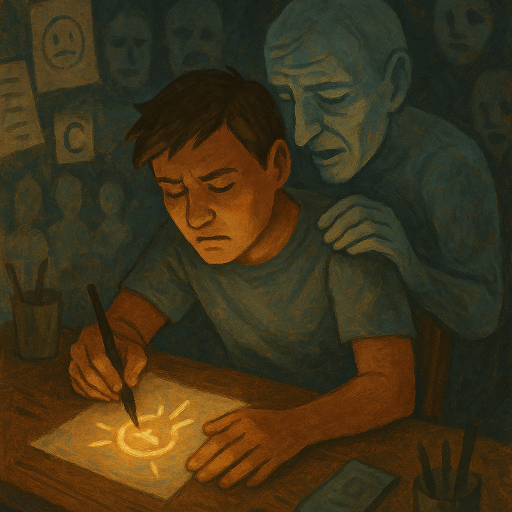It's far more common than you might think it is. This is by no means a question of just you. Throughout our life we've run into external sources that question our ideas and initiatives. From very young age. So, unless we for some reason ignored all social feedback and resisted it(for whatever reason), the common thread is to internalize that external potential criticism.
It's a socialized process. It focuses on the external approval of others. The critique we have directed towards ourselves has got more to do about what others will think of us, if we execute the idea.
The idea itself, and whether it has merit or not, is more often than not the issue at hand. Since we are social creatures, what matters more is whether the idea will pull us inside a social circle, or potentially exclude us from one.
You might think that you don't really care what others think, but unless you have some form of antisocial/sociopathic trait, that is self-deception at hand. Whether we are introverts or not, the ideas we have that we suspect aren't going to be approved (whether we have justifiable cause for believing so, or not) will most likely never see the light of day.
So many ideas are rejected by harsh self-rejection, that the world probably misses most of the creative wonders that it could've seen. Artists, if they're lucky, get discovered post-mortem. That huge archive of poetry, paintings, or music gets found and published by the world after. So strong is the tendency of self-rejection, that even the slightest whiff of it could cause a creative mind to avoid the social stigma of having to explain their art.
That fear certainly is tangible.
So what can we do about it?
The first step is to recognize self-doubt for what it is: a signal, not a verdict. When you feel the hesitation creeping in, try to pause and ask yourself: "is this doubt about the quality of the idea itself, or is it about how others might perceive it?"
This simple question can separate genuine refinement from paralyzing fear.
The second step is practice. Share small things first. Things that feel low-stakes. A sketch with a close friend, a half-formed thought in a trusted group, a quick experiment online. Each time you face the discomfort and survive it, you prove to yourself that rejection (real or imagined) is survivable.
Confidence doesn’t come from eliminating self-doubt, but from repeatedly moving through it.
I'm sure some shudders at the very thought of such scrutiny, or even: "but who am I creating for if I change my art based on their feedback?".
You're the creator, they're the eyes you're seeking validation from.
Try to reframe the role of critique. Instead of seeing feedback as a threat, try to see it as information. It doesn’t define your worth, it just offers another perspective. And not all perspectives are equal. Some come from people who understand your vision, others from those who never will.
Learning to tell the difference is a kind of creative armor.
You can't get there, learn that without taking that first step. It's a skill which you probably will spend time avoiding or honing. But, take my advice, put your stuff out there! You'll develop more from it. If not as an artist, but as a person.
Finally, there’s a mindset shift worth cultivating: creation for its own sake. When the act of making something becomes valuable in and of itself, regardless of applause or rejection: you reclaim your freedom. That doesn’t mean ignoring the world, but it means your inner compass starts to matter more than external approval.
Self-doubt may never fully disappear, but it doesn’t have to. It can live alongside creation, as long as it doesn’t take the driver’s seat. And if you let yourself move forward despite its presence, you might be surprised at how much the world was waiting to see what only you could bring.
In the end, the biggest tragedy isn’t that we doubt.
It’s when we let doubt decide for us.
Every time you create, you have a choice: silence yourself in advance, or risk being heard. One guarantees nothing changes; the other leaves open the possibility of connection, impact, and even joy.
The world doesn’t need another perfectly polished voice. It needs YOUR voice, with its flaws, quirks, and raw honesty. So let the doubt sit in the passenger seat if it must, but don’t hand it the wheel. Because somewhere out there, someone might be waiting for exactly what only you can offer.

